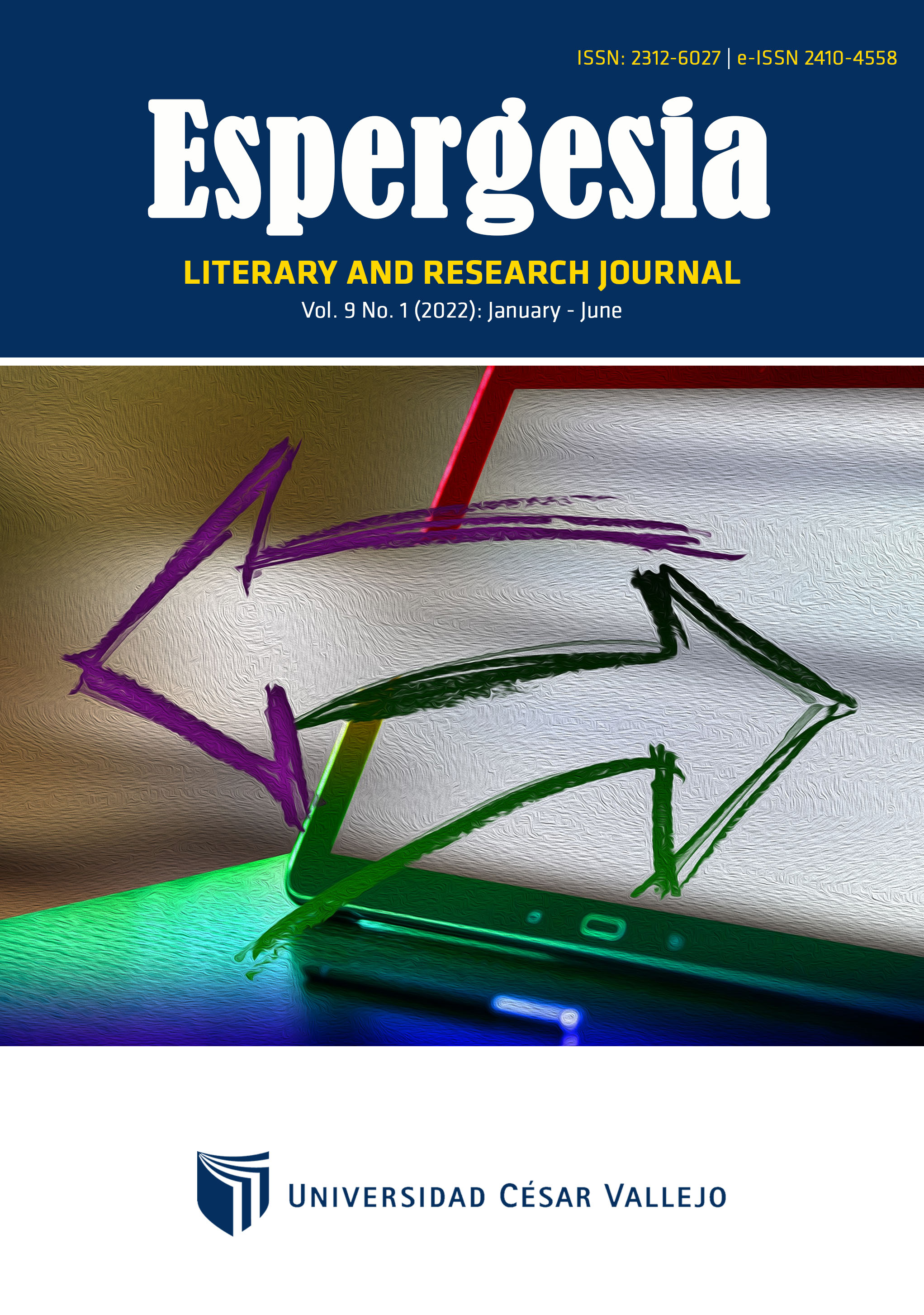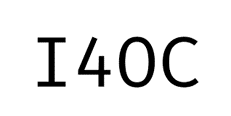Determinants of didactics in the virtual educational communication of Higher Education, COVID-19 context
DOI:
https://doi.org/10.18050/rev.espergesia.v9i1.2074Abstract
This qualitative Participatory Action-Research study aims to analyze the influence of best practices and innovative activities in the virtual classroom, including specific action plans for subjects that allow, as a result, a substantial increase in the cognitive response of students. This is reflected through commitment and genuine interest that generates a space to enrich virtual educational communication. Some of the main premises or applications that resulted as findings show that curious professors stimulate and encourage curious students, this is a circle that starts consciously from the teacher; A comprehensive education focused on collaborative learning is directly related to growth in social-professional skills and human-intellectual skills; and, a teacher who is self-aware that there is a Learning Zone also for him, where he reflects, practices and studies. It is concluded that didactics is efficient if it is directly related to the attitude and enthusiasm that the teacher shows towards the content of the subject and consequently towards his student's Acting Zone.
Keywords: virtual educational communication; integral education; collaborative learning; didactic.
Downloads
References
Africano Gelvez, B. & Anzola de Díaz, M. (2018). El acto educativo virtual. Una visión desde la confianza. EDUCERE, Revista Venezolana de Educación, 22(73), 521-531. http://www.redalyc.org/articulo.oa?id=35656676003
Akhyar, M. (2010). A model of vocational competency assesment of industrial engineering students of Vocational Hig Schools. Journal of Education, 1(2) https://journal.uny.ac.id/index.php/joe/article/view/193
Calderón, R. (2009). Los objetivos en investigación cuantitativa y cualitativa. Revista Ehecámecatl. IPEP. https://moodle.unes.edu.mx/mod/resource/view.php?id=9993
DIGCOMP. (2016). A Framework for Developing and Understanding Digital Competence in Europe. Joint Research Centre –JRC. https://ec.europa.eu/jrc/en/
EDUTIC. (2012). Los 10 hitos tecnológicos que marcarán la educación en Chile. Desafíos para el desarrollo de la educación superior. Tecnología e innovación. www.edutic.cl
Flores, N., & Salazar, L. (2020). Formación docente en didáctica universitaria en la pandemia: entre la reflexión pedagógica y la instrumentalización. Dilemas y transiciones de la educación superior 7(2). http://www.scielo.edu.uy/scielo.php?script=sci_arttext&pid=S2301-01262020000200107&lng=es&nrm=iso
Garrison, D. R., & Anderson, T. (2005). El e-learning en el siglo XXI. Investigación y práctica. Ediciones Octaedro.
Gazca, L. (2020) Implicaciones del coronavirus covid-19 en los procesos de enseñanza en la educación superior. Revista Iberoamericana para la investigación y el Desarrollo Educativo 11(21). https://doi.org/10.23913/ride.v11i21.753
Giurgiu, L. (2017). Microlearning an Evolving Elearning Trend. Revista Scientific Bulletin De Gruyter Open, 22(1), 18-23. https://doi.org/10.1515/bsaft-2017-0003
Gros Salvat, B. (2014) La comunicación en espacios virtuales – Enfoques y experiencias de formación en línea. Universitat Oberta de Catalunya (UOC)
Gutiérrez, A. (2003). Alfabetización digital: Algo más que ratones y teclas. Gedisa.
Loyens, S. M. M., Gibels, D., Coertjens, L., & Côté, D. J. (2013). Students’ approaches to learning in problem-based learning: Taking into account professional behavior in the tutorial groups, self-study time, and different assessment aspects. Studies in Educational Evaluation, 39, 23-32. https://doi:10.1016/j.stueduc.2012.10.004
Palomares, A., & Cebrian, A. (2016). Una experiencia de Flipped Classroom o Aula Invertida en la Facultad de Educaci6n de Albacete. En R. ROIG-VILA (ed.). Tecnología, innovación e investigación en los procesos de enseñanza- aprendizaje (pp. 2860-2871). Octaedro.
Quinn, R. (Febrero 14, 2018). Talks at Google: Purpose-Driven life. [Video]. https://www.youtube.com/watch?v=58HPpS514Bc&
Rama Vitale, C. (2019) La virtualización de la universidad en América Latina. EUCASA – Ediciones Universidad Católica de Salta.
Roe, R. (2003). ¿Qué hace competente a un psicólogo? Papeles del Psicólogo, 24(86), 1-12. https://www.redalyc.org/pdf/778/77808601.pdf
Saza Garzón, I. (2018) Propuesta didáctica para ambientes virtuales de aprendizaje desde el enfoque praxeológico. Praxis & Saber Revista de investigación y pedagogía 9(20). http://www.redalyc.org/articulo.oa?id=477257681010
Villanueva, Senén (2017, 09 de enero) Crece demanda de clases en línea en universidades públicas y privadas, Diario la Prensa.
Downloads
Published
How to Cite
Issue
Section
License
Copyright (c) 2022 Jacobo Clemente Morales Rodríguez, Dolores Vélez Jiménez

This work is licensed under a Creative Commons Attribution-NonCommercial 4.0 International License.


















